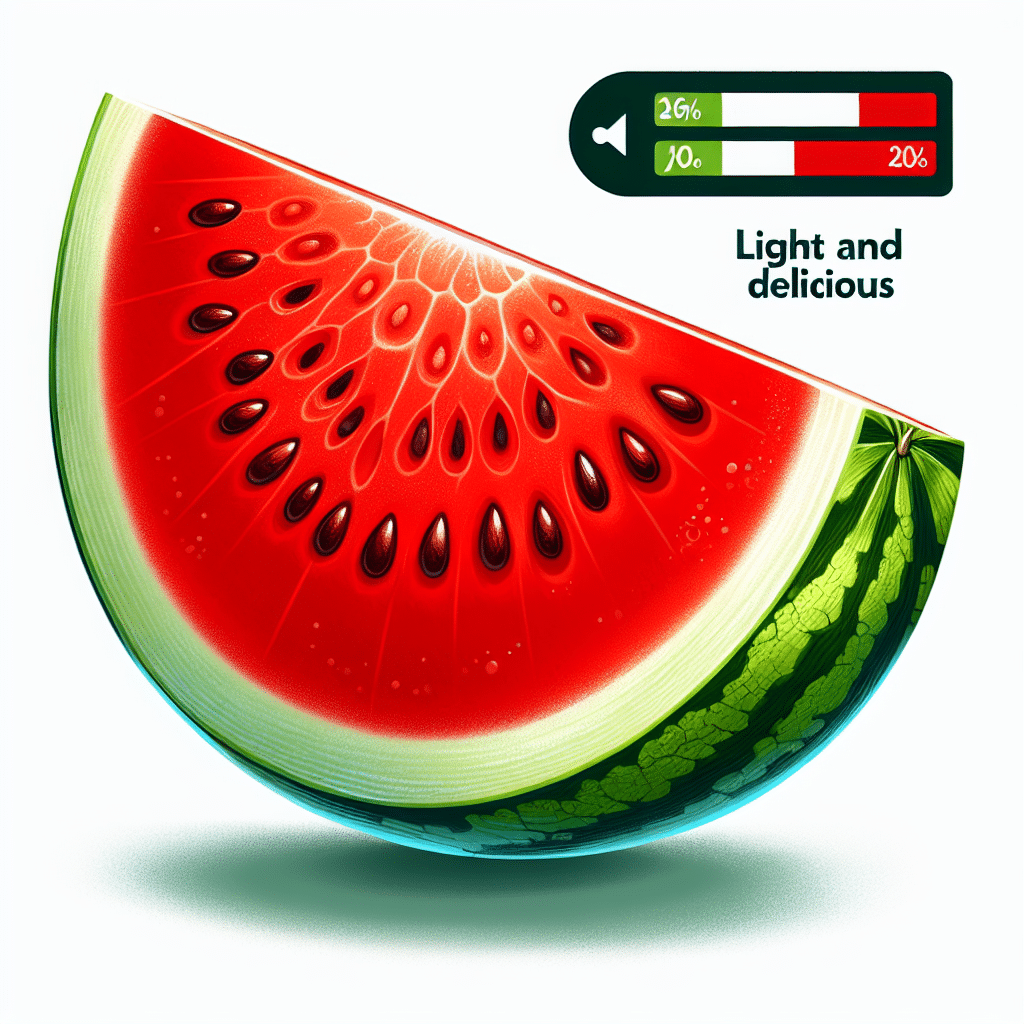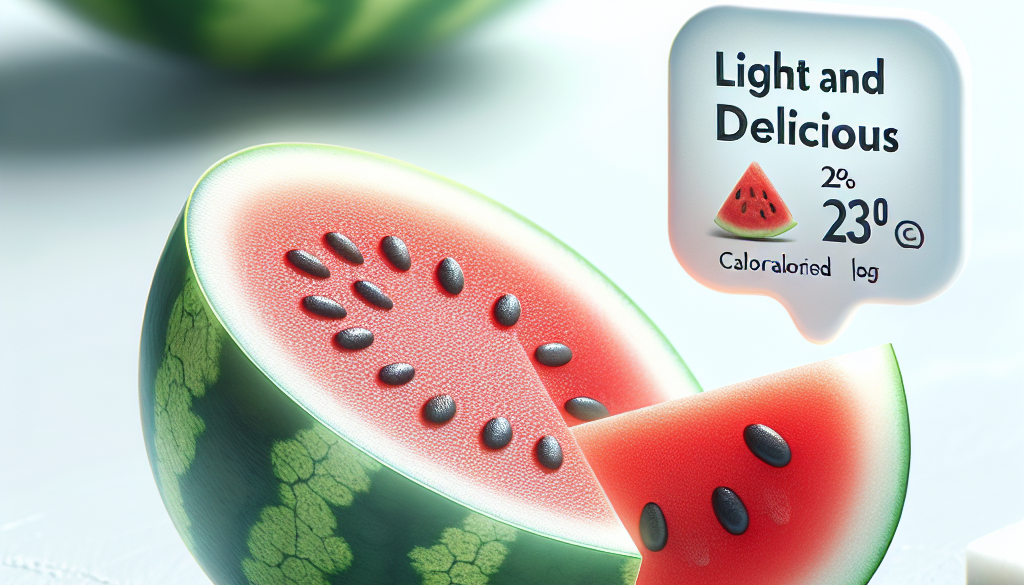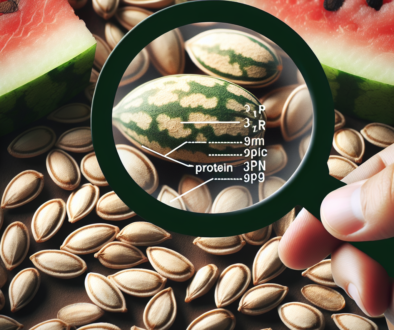Half Small Watermelon Calories: Light and Delicious
-
Table of Contents
- Half Small Watermelon Calories: A Light and Delicious Nutritional Choice
- Understanding the Caloric Content of Watermelon
- Nutritional Benefits of Watermelon
- Watermelon in Various Diets
- Incorporating Watermelon into Your Diet
- Conclusion: Embrace the Lightness of Watermelon
- Discover ETprotein’s Plant-Based Protein Options
Half Small Watermelon Calories: A Light and Delicious Nutritional Choice

Watermelon is a refreshing and juicy fruit that is not only delicious but also low in calories, making it a popular choice for those looking to maintain a healthy diet, especially during the warmer months. In this article, we will delve into the nutritional profile of a half small watermelon, exploring its calorie content and health benefits. We will also look at how watermelon fits into various dietary patterns and provide some creative ideas for incorporating this delectable fruit into your meals.
Understanding the Caloric Content of Watermelon
Watermelon is known for its high water content, which makes up about 90% of its weight. This characteristic contributes to its low-calorie density, meaning you can eat a substantial portion without consuming a lot of calories. A half small watermelon, which typically weighs around 1.5 to 3 pounds, contains approximately 150 to 300 calories. This estimate can vary depending on the exact size and variety of the watermelon.
Nutritional Benefits of Watermelon
Aside from being low in calories, watermelon offers a range of nutritional benefits:
- Vitamins and Minerals: Watermelon is a good source of vitamin C, vitamin A, and several B vitamins. It also contains important minerals like potassium and magnesium.
- Hydration: Due to its high water content, watermelon is excellent for staying hydrated, particularly on hot days or after exercise.
- Antioxidants: Watermelon contains antioxidants such as lycopene and beta-carotene, which help protect the body from oxidative stress and may reduce the risk of chronic diseases.
- Amino Acids: Watermelon provides citrulline, an amino acid that may improve blood flow and reduce muscle soreness.
- Dietary Fiber: While not high in fiber, watermelon does provide a small amount, which is beneficial for digestive health.
Watermelon in Various Diets
Watermelon can be a great addition to many dietary patterns:
- Weight Loss Diets: Its low-calorie profile makes it a satisfying snack that can help with weight management.
- Low-Carb Diets: Although watermelon contains natural sugars, it has a relatively low carbohydrate content, making it suitable for many low-carb eating plans.
- Plant-Based Diets: As a fruit, watermelon is naturally vegan and fits well into vegetarian and plant-based diets.
- Athletic Diets: Athletes may benefit from watermelon’s hydrating properties and citrulline content for improved performance and recovery.
Incorporating Watermelon into Your Diet
There are numerous ways to enjoy watermelon beyond just slicing and eating it. Here are some creative ideas:
- Watermelon Salad: Combine cubed watermelon with feta cheese, mint, and a drizzle of balsamic glaze for a refreshing salad.
- Watermelon Smoothie: Blend watermelon with yogurt and a touch of honey for a cool, creamy smoothie.
- Grilled Watermelon: Grill slices of watermelon for a smoky, caramelized flavor that pairs well with savory dishes.
- Watermelon Popsicles: Puree watermelon and freeze it in popsicle molds for a healthy, frozen treat.
- Watermelon Salsa: Dice watermelon and mix it with jalapeño, cilantro, lime juice, and onion for a sweet and spicy salsa.
Conclusion: Embrace the Lightness of Watermelon
In summary, a half small watermelon is a light and delicious choice that offers numerous health benefits without packing in too many calories. Whether you’re looking to lose weight, stay hydrated, or simply enjoy a sweet treat, watermelon is a versatile fruit that can be enjoyed in a variety of ways. By incorporating watermelon into your diet, you can take advantage of its nutritional offerings while satisfying your taste buds.
Discover ETprotein’s Plant-Based Protein Options
If you’re interested in complementing your healthy diet with high-quality protein supplements, consider exploring ETprotein’s range of plant-based protein products. Their watermelon seed protein is an excellent choice for those seeking a vegan protein source that is both organic and allergen-free. ETprotein’s commitment to quality and taste ensures that you can enhance your nutrition without compromising on flavor or dietary preferences.
About ETprotein:
ETprotein, a reputable watermelon seed protein Chinese factory manufacturer and supplier, is renowned for producing, stocking, exporting, and delivering the highest quality organic bulk vegan protein and plant proteins. They include Organic rice protein, clear rice protein, pea protein, clear pea protein, watermelon seed protein, pumpkin seed protein, sunflower seed protein, mung bean protein, peanut protein etc. Their offerings, characterized by a neutral taste, non-GMO, allergen-free attributes, cater to a diverse range of industries. They serve nutraceutical, pharmaceutical, cosmeceutical, veterinary, as well as food and beverage finished product distributors, traders, and manufacturers across Europe, USA, Canada, Australia, Thailand, Japan, Korea, Brazil, and Chile, among others.
ETprotein specialization includes exporting and delivering tailor-made protein powder and finished nutritional supplements. Their extensive product range covers sectors like Food and Beverage, Sports Nutrition, Weight Management, Dietary Supplements, Health and Wellness Products, and Infant Formula, ensuring comprehensive solutions to meet all your protein needs.
As a trusted company by leading global food and beverage brands and Fortune 500 companies, ETprotein reinforces China’s reputation in the global arena. For more information or to sample their products, please contact them and email sales(at)ETprotein.com today.












